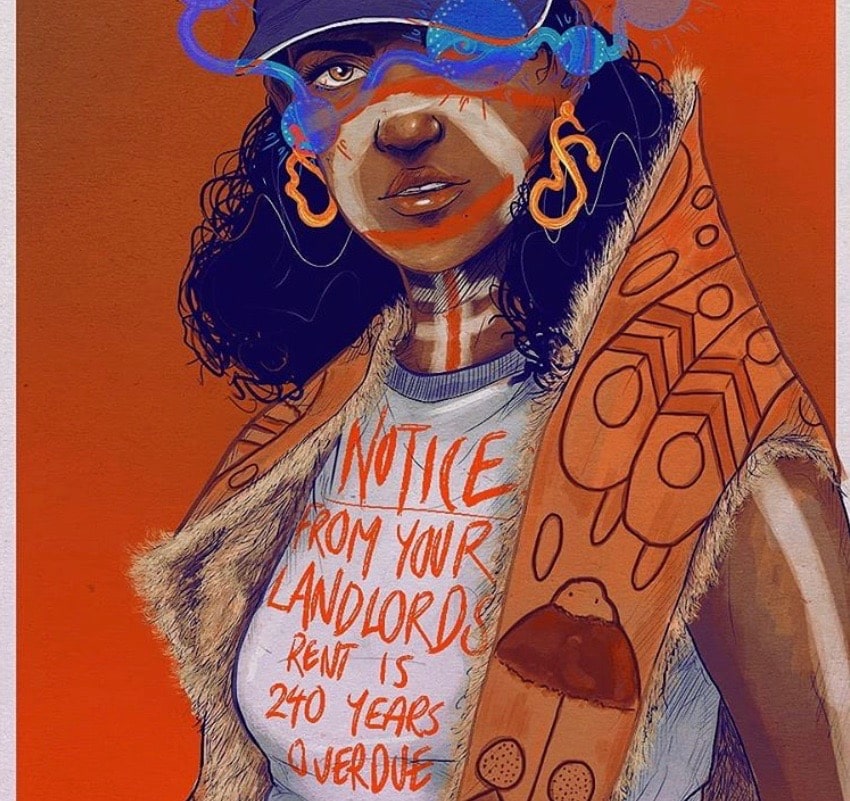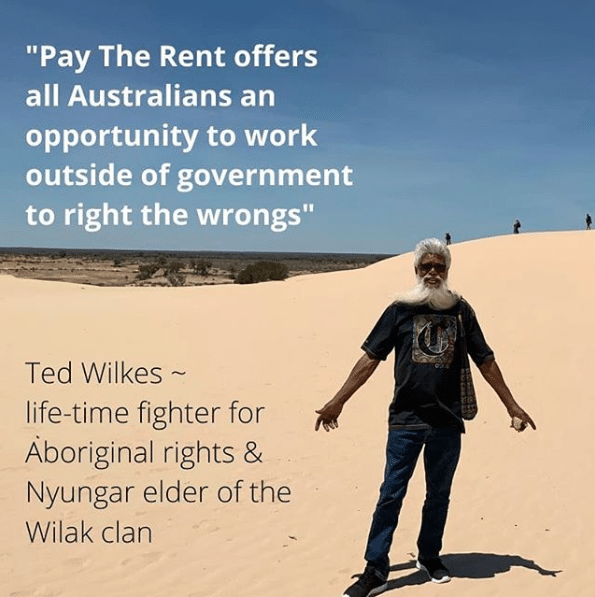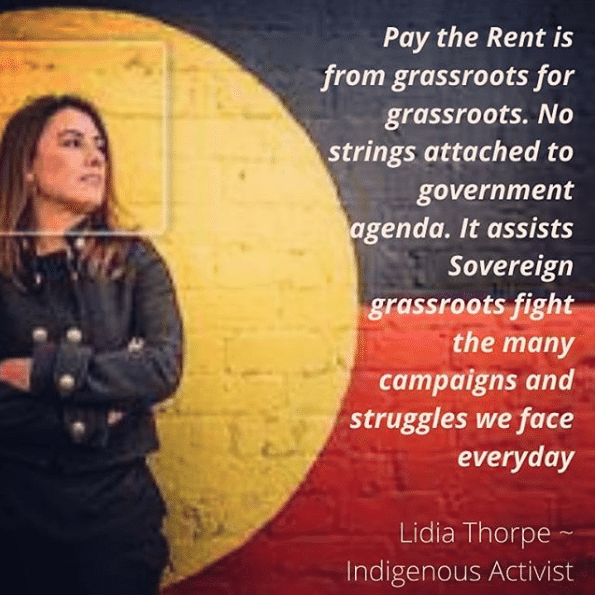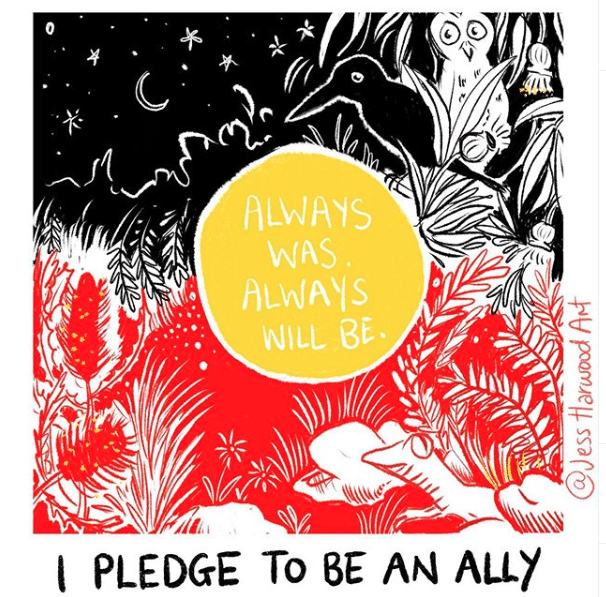Pay The Rent
Author: Kirsten Bradley
Go to Source
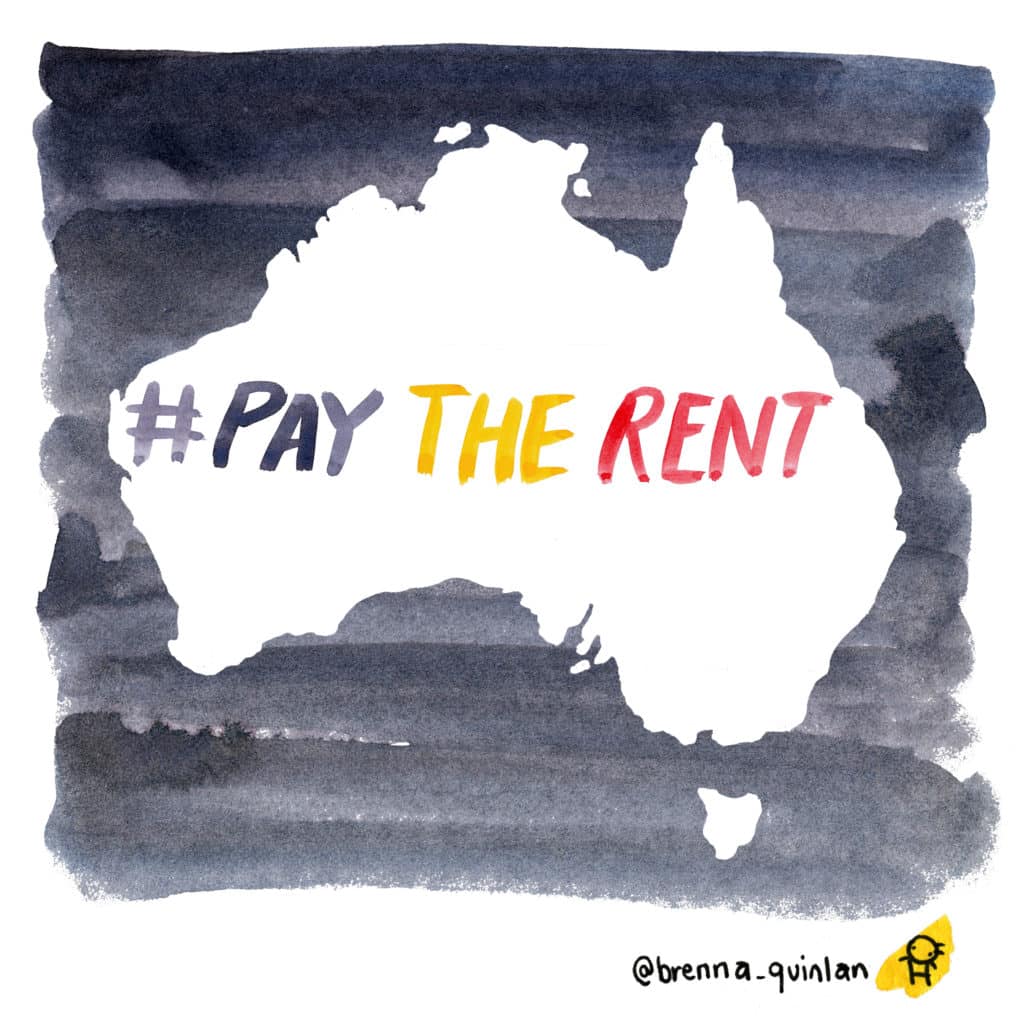
This everyday climate action is very simple, and you can start doing it today. Pay the rent. To the people upon whose traditional lands you live, work and benefit from, each and every day.
Hopefully, in the future, we will all work together to achieve repatriation for the traditional owners of the lands on which we live. But in most places, we’re still a fair way off from achieving this kind of large-scale, co-ordinated response.
What you CAN do though, right now – without waiting for further permission or top-down structures, is pay the rent yourself.
You can pay the rent if you own a house or land. You can pay the rent if you are currently renting, or if you run a business, on traditional lands. Because we all benefit from the lands on which we live.
For nearly everywhere (at least in Australia), including likely where you’re sitting right now, that land beneath your feet were never ceded. It was colonised. Taken. And now you, whether you’re a home owner, renter or otherwise, directly benefit from this land, taken under those conditions. So, pay the rent.
This is not about white guilt, or colonial settler guilt, it’s about simply checking your privilege. And doing the right thing.
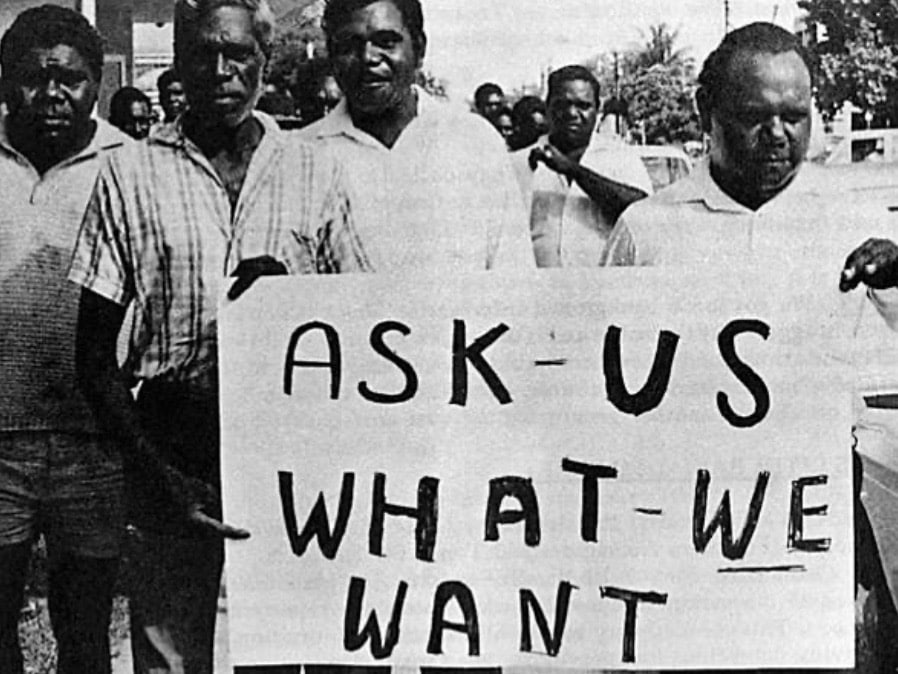
What does Pay The Rent actually mean?
( From Treaty Republic) – “Since the 1970’s, the ‘Pay the Rent’ scheme, has been actively operating to provide opportunities for non-Indigenous Australians to support initiatives controlled by the traditional land owners in their struggle for self-determination and economic independence.
Today ‘Pay the Rent’ is a reasonable, rational and responsible way of ensuring the survival of the oldest living culture in the world. It is a significant contribution to the process of Reconciliation, and embracing its philosophy is a sign of growing maturity among today’s ‘Australians’.
The ‘Pay the Rent’ concept is not new. It has been around as long as there has been trade, respect and recognition of rights of ownership. It was first demonstrated in Australia by a Quaker settler, Robert Cock in 1837 who paid the interest on one-fifth of the value of his land as a ‘yearly rent’.
‘Pay the Rent’ acknowledges responsibility, accepts obligation and allows compensation. ‘Pay the Rent’ promotes understanding, mutual respect and good will between colonial societies and Indigenous sovereign nations throughout the world.”
There are many excellent how-tos and why-tos on paying the rent out there. There’s a good overview at IndigneousX – and this one – and this one too.
There’s also a BuzzFeed video & article here which is worth a watch.
Paying the rent is a practical way to support the self-determination of Aboriginal peoples. It supports elders and strengthens the capacity for economic independence, the practicing of lore and protection of land. – Yael Leah & Gunnai/Mara elder Uncle Robbie Thorpe
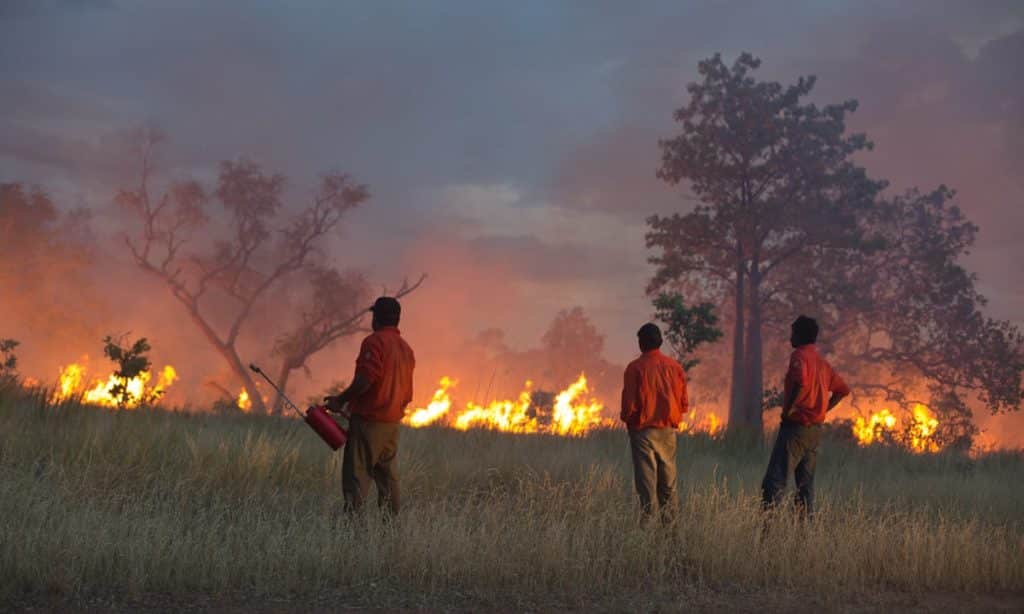
How does Paying The Rent relate to everyday Climate Action?
Paying The Rent relates firstly to climate justice.
It relates to the necessity that everyone in our communities (and on our planet) deserves a just transition, and the ability and resources to be able to adapt to the climate chaos that is now happening in our world.
By paying the rent, you are contributing to making things that tiny bit better when it comes to Australia’s indigenous communities, and how well-resourced they are to respond to whatever is important to do next.
Paying the Rent relates directly to mitigation & resilient futuring, for all of us.
With the recent (and ongoing) Australian Bushfires, you’ve likely seen some people writing or speaking about indigenous burning processes, or cultural burning – and how applying these previously common (until colonisation) practices to certain types of fire-prone bushland protects forest biodiversity, and also make our forest-dwelling communities less fire-prone as a result.
By paying the rent to indigenous communities, you are helping support and strengthen essential indigenous knowledge bases, that will be essential to repairing our ecosystems (and our communities) moving forwards.
Throughout the world, it has been shown that indigenous-managed lands have the highest biodiversity, and may be overwhelmingly responsible for maintaining ecological stability into the future.
There are many other good reasons to Pay the Rent as well, but as you can see, it’s clearly worth it – if you’re committed to climate action.
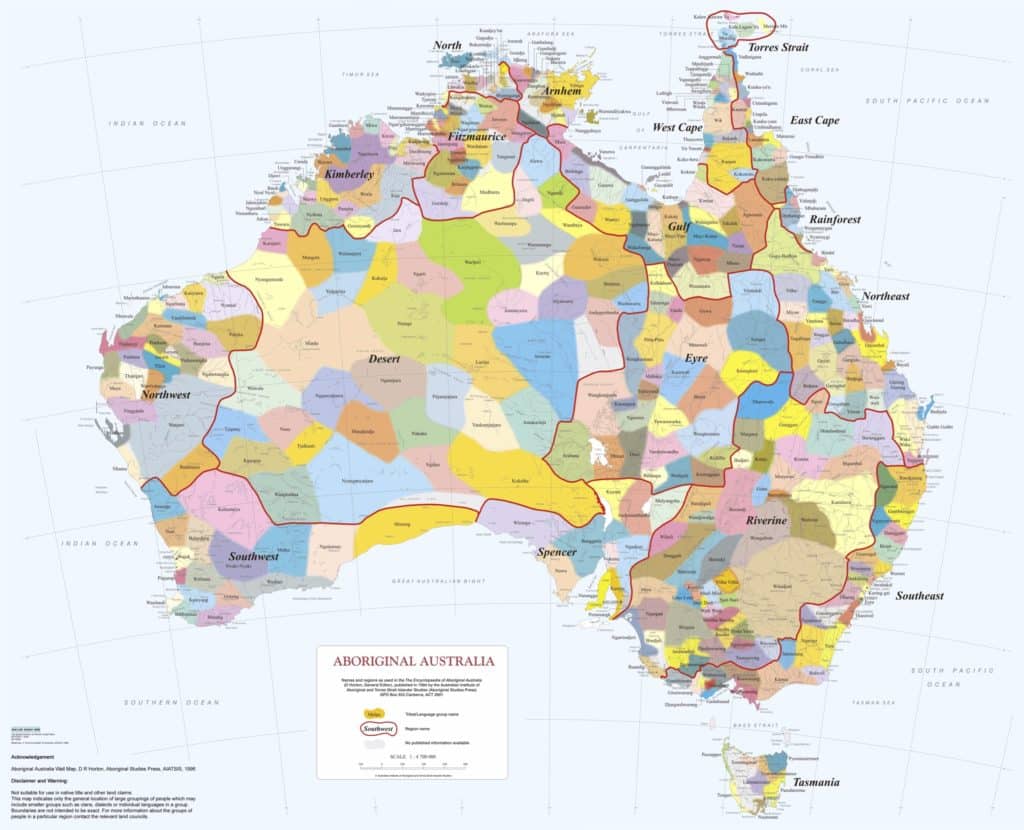
How can I Pay The Rent where I live?
There’s lots of ways you can pay the rent.
Firstly, decide on your weekly rental budget. This one is up to you, but activist and Gunnai/Mara elder Robbie Thorpe, suggests 1% of your annual income.
Your rental payment might be $5 a week. Or it might be $50. Be honest with yourself, and also consider how many years you’ve lived here, without paying the rent, while benefiting so from this place, in all kinds of ways.
Figure out what you can pay, and write it down. Put it up on your fridge. And then stick to it.
Secondly, figure out (if you’re not already clear) who’s land you’re on. If you’re in Australia, here’s a map to help you identify where you live.
Thirdly, find your closest indigenous body or community, and ask them who you should pay the rent to. They should be able to point you in the right direction.
If you cannot locate your local indigenous body or community (many communities have been intentionally fragmented by colonial interests), see what indigenous-led trust funds you can find at a regional, or state level – for example, Victoria has a list of Registered Aboriginal Parties and the Land Justice Group.
If you cannot find something at a state level at this point, our friend and activist Alex Kelly suggests you could direct your rent to indigenous-run organisation like Seed Indigenous Youth Climate Network or Original Power – until you find a more local fund to pay the rent to.
The most important thing about Paying The Rent is that your rent needs to end up in the hands of indigenous people, and how your rent is used needs to be determined BY indigenous people. Which is why the simplicity of a financial contributions make a lot of sense.
You pay, they decide what to do with it. This is not conditional funding. This is the simple act of paying the rent.
Paying The Rent is not just about contributing financially
Gunnai/Mara elder Robbie Thorpe speaks about the pay the rent concept as “justifying your occupation.” It is important to note however that the practice of paying the rent in the 70’s developed as a concept that not only encompassed monetary compensation (at a suggested minimal payment of 1% of one’s annual income), but as a forum for which non-indigenous people could commit themselves to redressing colonisation through non-monetary actions as well.
This is demonstrated as explicit commitment to taking actions. Paying the rent was framed as giving non-Indigenous people the right to stay in this country but stipulated that groups of people who pay the rent also meet to self-educate and take further political action – Yael Leah & Gunnai/Mara elder Uncle Robbie Thorpe
Why Pay The Rent?
Just think for a moment, how much you benefit from living where you do. In Australia, you’re living on a continent that has had 80,000+ years of continual culture, regenerative agriculture, and exceptional land stewardship. All of which you’ve benefited from, in small and large ways, directly.
Then there’s the ways you’ve almost certainly benefited (even if you don’t support mining) from the current Australian economy, the minerals extraction, the healthcare system, and all the other privileges that have come with this colonial settler society. While these ‘benefits’ are all deeply problematic, the fact remains – you have benefited from them. No matter who you vote for, or what you’ve built your house from.
No matter what you do for a living, or what you like to do on your days off. We’ve all been doing everything that we do on stolen, traditional lands. It’s time to pay the rent.
By paying the rent, even if it’s $1 a week, you are engaging in repatriation with the indigenous people of the land on which you live.
There are much larger conversations here to be had – about land use, sovereignty, racism, colonialism, capitalism, climate justice, mitigation and so much more. But all of those conversations start with acknowledging the truth of the matter, so that we can all move forwards.
And paying the rent is a simple and small, but also essential, part of telling that truth. Go to it x.
This everyday climate action is part of our Permaculture Living 2020 series – we’re sharing one action a week that you can get started with right now, to make meaningful changes, both big and small, with do-able actions and habits. Make sure you’re on our newsletter so you get notified of all the goodness.
A few more things to read and consider, from beyond Australia…
- Truth and Reconciliation Commission – restorative justice process applied in South Africa
- Waitangi Tribunal – a standing commission of inquiry to uphold the Treaty of Waitangi in Aotearoa /New Zealand
- InHabitants – a new doco about indigenous practices + land management in North America. The ‘Fire is our Relative’ piece especially resonates, right now.
Big thanks to Brenna Quinlan for the lead illustration.
The post Pay The Rent appeared first on Milkwood: permaculture courses, skills + stories.

